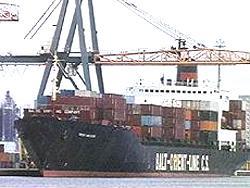Tariff Pressures Slow China's Economic Growth, Says the AP
Beijing, China, July 16, 2019-China’s economic growth sank to its lowest level in at least 26 years in the quarter ending in June, adding to pressure on Chinese leaders as they fight a tariff war with Washington, reports the Associated Press (AP).
“The world’s second-largest economy grew 6.2% over a year ago, down from the previous quarter’s 6.4%, government data showed Monday.
“Hopes for an early growth rebound faded after President Donald Trump raised tariffs on Chinese imports in May to turn up pressure on Beijing over the aggressive tactics it’s using to challenge American technological dominance. Now, economists say the slowdown might extend into next year.
“Weaker Chinese activity carries global repercussions. China is the world’s second-biggest export market behind the United States. Countries that feed raw materials to Chinese factories-from Chilean copper to Indonesian coal-are especially vulnerable to decelerating growth in China.
The proportion of South African output going to China, for instance, has shot up from 2% in the mid-2000s to 15% now, according to a study by the McKinsey Global Institute. Then there’s the Democratic Republic of the Congo, which sends 45% of its exports to China, according to United Nations data cited in the McKinsey report. In addition, emerging market countries are increasingly dependent on Chinese investment.
“Among major economies, Australia sent 35% of its exports to China in April, Brazil 30% and South Korea 24%, according to the Peterson Institute for International Economics.
“Besides hurting countries that export raw materials to Beijing, the Chinese slowdown could come back to squeeze American companies like Procter & Gamble and General Motors that sell into the vast Chinese consumer market. Slowing demand in China could depress their revenue, earnings and stock market value, said Mary Lovely, a Syracuse University economist who studies trade.
“Eventually, weaker stock prices could undermine U.S. consumer confidence and the American economy, she said.”
